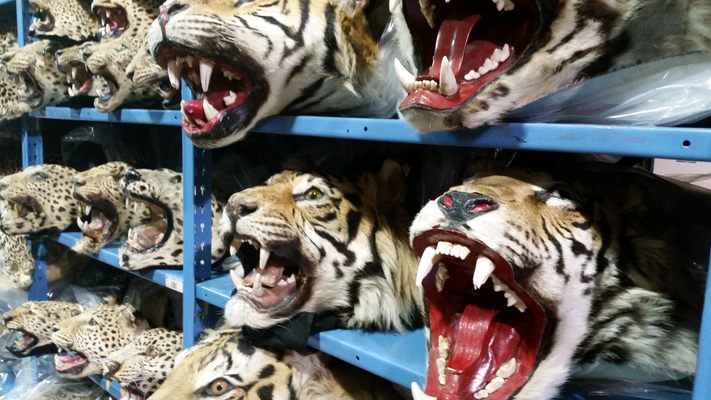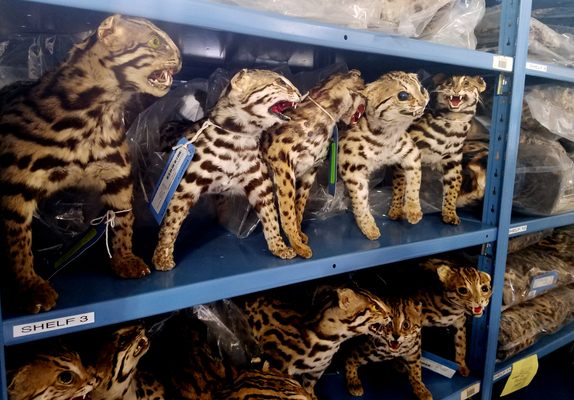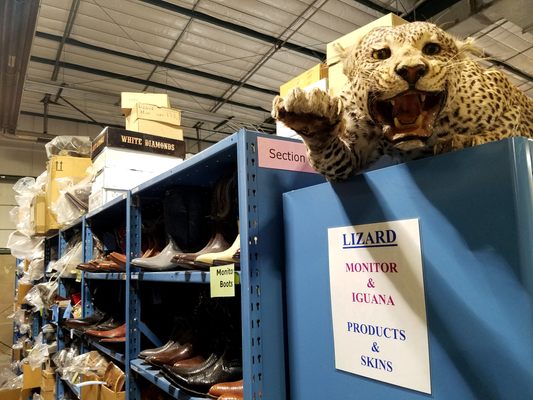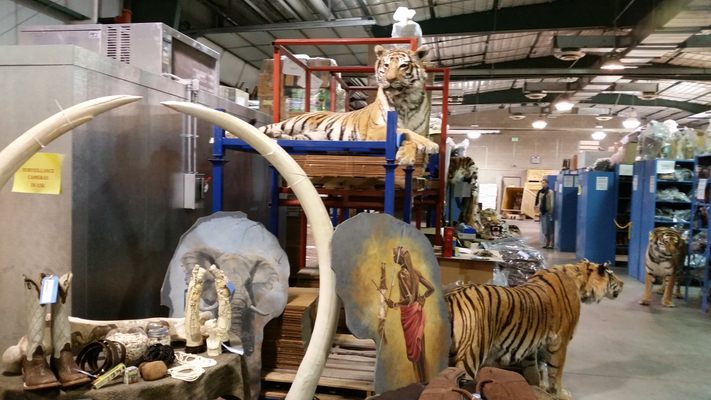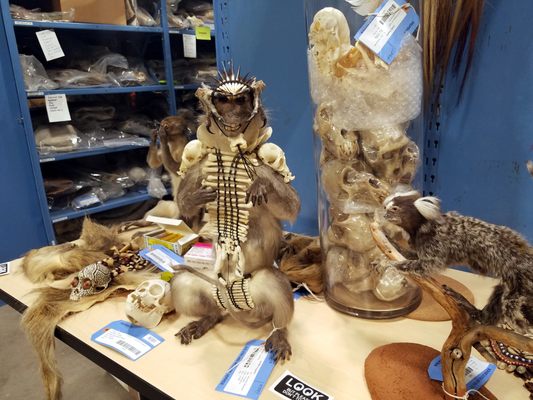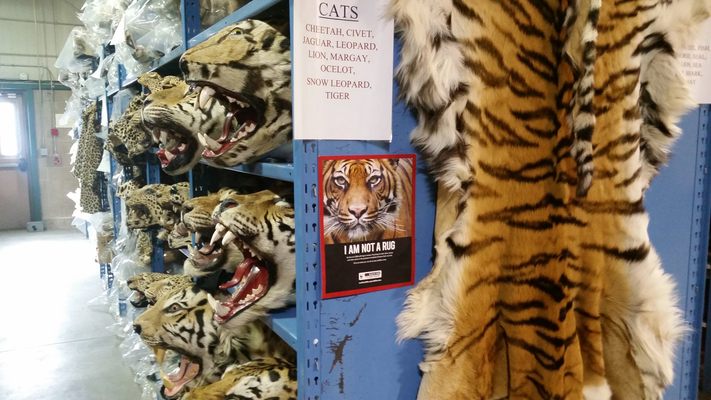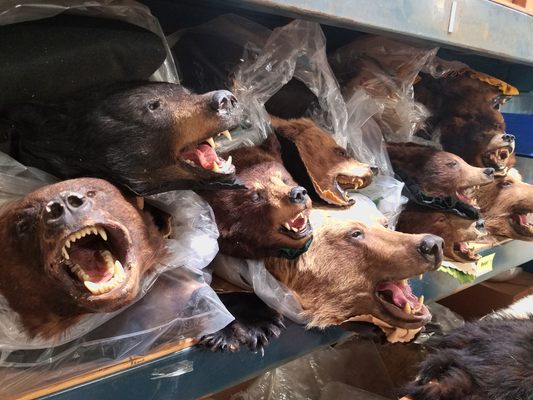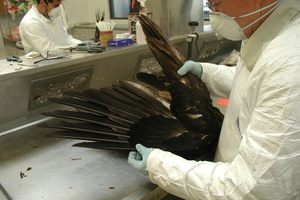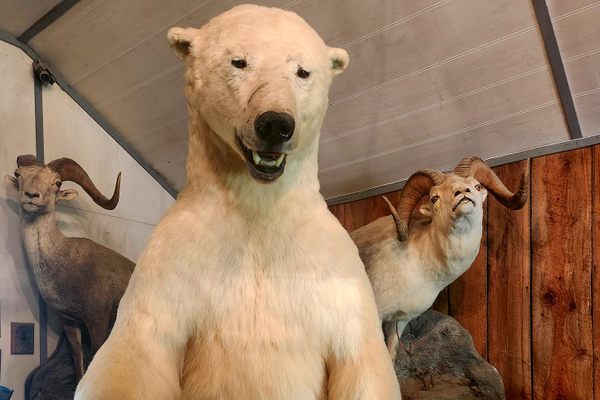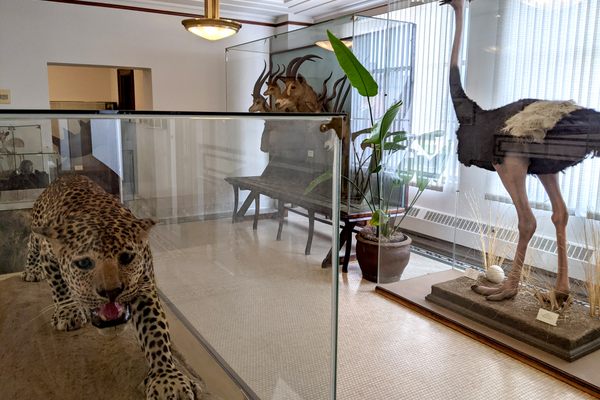About
A morbid medley of dead animals fills a warehouse just outside Denver, Colorado. Their taxidermy bodies, pelts, skins, bones, and more line the shelves. It’s like a massive zoo, made up of the remnants of illegally captured—and often endangered—creatures.
The National Wildlife Property Repository holds over 1.3 million confiscated specimens. The warehouse hosts a whole menagerie of exotic animals. Some of the carcasses are whole, while others are just a foot or bone, meant to be an odd trinket or tourist souvenir.
There are the expected finds, like mounted tigers, leopard skins, rhino horns, and carved ivory. Then there are more obscure oddities, like lamps made of zebra hooves, furniture made of elephant feet, snake wine, and pills made of dried seal penises.
It's a disturbing sight, one that forces viewers to reckon with issues like poaching and trafficking that threaten so many vulnerable species. After China, the United States has the second-largest illegal wildlife trade in the world.
The U.S. Fish and Wildlife Service’s Office of Law Enforcement (OLE) confiscates hundreds of thousands of trafficked animal specimens each year during their regular investigations at entry points around the country. Around 15 percent of the contents the officers seize wind up in the repository.
The repository donates and loans some of its vast collection of items to educational, nonprofit, and conservation organizations. It also hosts school field trips, where kids learn about the wildlife trade and the importance of protecting endangered species.
Related Tags
Know Before You Go
The repository isn't open to the general public, though the facility does offer the occasional tour.
Community Contributors
Added By
Published
November 7, 2017
Sources
- https://www.fws.gov/wildliferepository/about.php
- https://www.wired.com/story/warehouse-of-confiscated-animal-horrors/?mbid=nl_102717_daily_list3_p5
- https://www.nytimes.com/2017/07/10/science/national-wildlife-property-repository-colorado.html
- https://news.nationalgeographic.com/2016/03/160301-usfws-cites-endangered-species-wildlife-trafficking-lacey-act-rhinos-elephants-ivory/
- https://www.theatlantic.com/video/index/374819/wildlife-warehouse/
